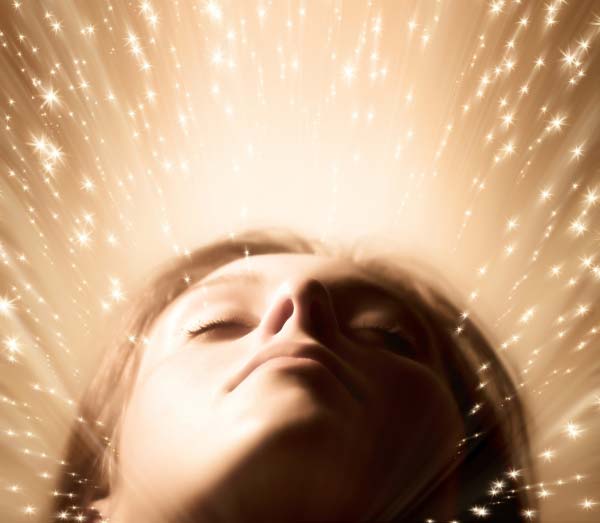Naps and Dreams Boost Learning, Study Finds

Scientists have long wondered why we sleep and why we dream. A new study provides evidence for some long-held notions that sleep and dreams boost learning and help us to make sense of the real world. Even naps can help, the researchers found.
Test subjects who dreamt about a challenging task performed it better than those who didn't have such dreams.
This newfound link between dreaming and learning gives insight into why humans bother to sleep at all. The study is thought to be the first to show "the relationship between dreaming and function in the outside world," said senior researcher Robert Stickgold of Harvard Medical School.
While dreams have always mystified mankind, scientists have been equally curious about sleep. "It is dangerous to go to sleep," Stickgold said, evolutionarily speaking. Unconscious beings lying flat on their backs are especially prone to attack, he pointed out.
So why have we evolved to spend a third of our lives sleeping?
Previous research has shown that sleep benefits the immune and endocrine systems, but it hasn't been clear that sleep per se is necessary. Resting quietly may be enough to meet these needs, Stickgold told LiveScience.
Sleep, however, might affect the brain in a way that no other state can equal, suggests the study published in the most recent issue of the journal Current Biology. The effect is likely critical for learning and making sense of life -- skills worth sleeping for, scientists think.
Sign up for the Live Science daily newsletter now
Get the world’s most fascinating discoveries delivered straight to your inbox.
Dreaming about it
During the study, 99 participants were taught to navigate a virtual maze on a computer screen. Half were then allowed to nap for two hours, while the other half remained awake. Later that day, all participants were re-tested on the maze task.
Those who reported dreaming about the maze significantly improved their performance. They did better than people who had slept, but did not dream. And better than those who stayed awake rehearsing the task in their minds. Specifically, the dreamers bettered their performance more than six times the improvements of all other participants.
Instead of simply rehashing the maze experience, participants described dreams that made broad associations between mazes and other aspects of their lives -- like recalling an experience exploring bat caves or seeing their future job application process depicted with maze-like features.
"Every day, we are gathering and encountering tremendous amounts of information and new experiences," said lead researcher Erin Wamsley, also of Harvard Medical School, in a press statement. "It would seem that our dreams are asking the question, 'How do I use this information to inform my life?'"
Dreams have priorities
Sleeping essentially lets the chaos of life sink in so we can make sense of it. A study earlier this year found that even naps boost learning.
"We can't really process one stream of information while we are taking in another one… so sleep becomes necessary," Stickgold said in a telephone interview. "It may be that for every two hours we are awake, it takes our brain an hour to process that information, so we need eight hours of sleep a night."
To remember something in particular -- say, the lines of a play or formulas for an exam -- it might help to study right before dozing, whether that means studying late at night or napping directly after a cram session, Stickgold said.
And if you can get yourself to dream about the material, you are at a particular advantage. Unfortunately, "dream content is notoriously hard to control," Stickgold said. The non-conscious brain "has its own rules," and focuses on whatever it deems most important, he added.
So your best bet for inducing an exam-acing dream is convincing yourself (and your brain) that the material truly matters, Stickgold said ¾ something that is, of course, easier to do for some subjects than others.
Dream interpretation
While some scientists have previously brushed off theories that dreams have meaning, Stickgold says dreams aren't random. "In dreams, we are seeing the brain's calculation of 'Do I care' and 'Why do I care?'" he explained.
The brain is also making associations between new information and past experiences. "What makes the human brain so brilliant is that we can take learning in one area and apply it to another," Stickgold said. And sleep may be critical for this level of understanding to occur.
Scientists used to think snoozing was only a cure for sleepiness. "It was as if we thought the only function of eating was to cure hunger, not to nourish our bodies," Stickgold said.
But now, researchers might have an understanding of dreams that even mystics may envy.
By reflecting the brain's effort to prioritize information and make associations, Stickgold said, "dreaming may be part of the process that creates the meaning of our lives."
- Top 10 Spooky Sleep Disorders
- 5 Things You Must Now About Sleep
- 10 Things You Didn't Know About the Brain
Robin Nixon is a former staff writer for Live Science. Robin graduated from Columbia University with a BA in Neuroscience and Behavior and pursued a PhD in Neural Science from New York University before shifting gears to travel and write. She worked in Indonesia, Cambodia, Jordan, Iraq and Sudan, for companies doing development work before returning to the U.S. and taking journalism classes at Harvard. She worked as a health and science journalist covering breakthroughs in neuroscience, medicine, and psychology for the lay public, and is the author of "Allergy-Free Kids; The Science-based Approach To Preventing Food Allergies," (Harper Collins, 2017). She will attend the Yale Writer’s Workshop in summer 2023.










